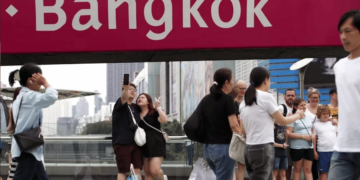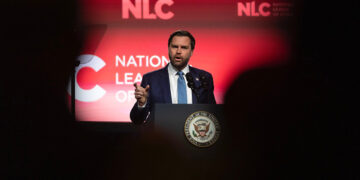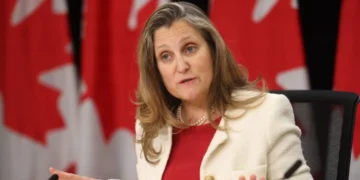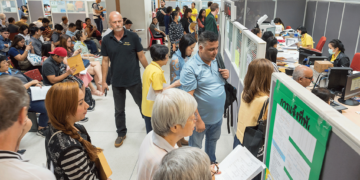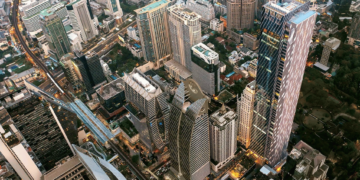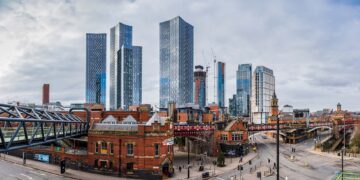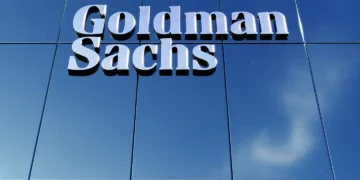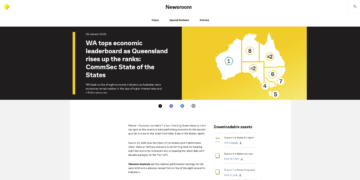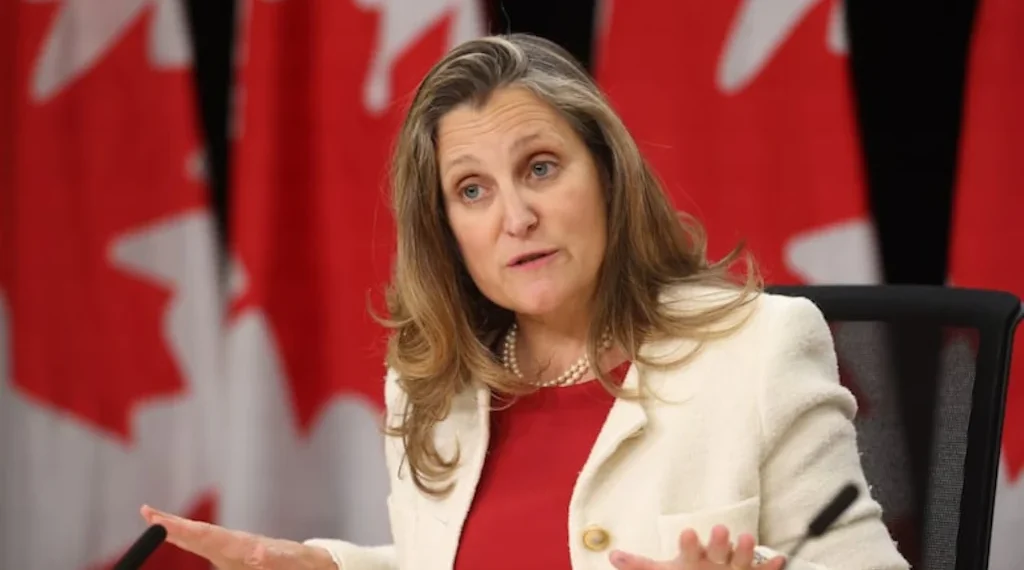Canadian Liberal Leadership Candidate Chrystia Freeland Proposes New Housing Policy Linking Immigration to Housing Supply
Chrystia Freeland, candidate for the leadership of the Canadian Liberal Party and former Minister of Finance, announced a new housing policy on 17 February 2025, proposing to link Canada’s immigration levels to housing supply. In a policy document outlining ten key measures, Freeland stated that this initiative aims to slow population growth and adjust immigration policy until housing affordability stabilises. The new policy is expected to have a significant impact on Canada’s housing market and immigrant communities, particularly Chinese homebuyers.
Linking Housing Supply to Immigration: Easing Market Pressure
Under the current federal immigration plan, Canada intends to admit over 500,000 permanent residents annually from 2024 to 2026. However, under Freeland’s new policy, this target will gradually decrease over the next three years, with the annual intake of permanent residents expected to drop to 365,000 by 2027.
At a press conference, Freeland stated:
“We cannot expand immigration indefinitely when housing supply is severely limited. There must be a balance between population growth and housing supply to ensure that Canadians, especially first-time homebuyers, have access to affordable housing.”
This new policy means that Canada’s future immigration levels will be directly influenced by the performance of the housing market. If housing supply remains tight, immigration quotas may be further reduced; conversely, if housing supply increases, immigration policy may be adjusted accordingly.
Liberal and Conservative Housing Policy Competition Heats Up
Notably, Conservative Party leader Pierre Poilievre proposed a similar plan in 2024, linking immigration levels to housing construction and promising to eliminate the federal Goods and Services Tax (GST) for first-time homebuyers.
However, Freeland’s policy differs from the Conservative approach in several key areas:
- Broader GST Relief – Freeland promises to exempt GST on first-time home purchases valued up to CAD 1.5 million, whereas Poilievre’s plan is limited to homes under CAD 1 million.
- Tying Federal Infrastructure Funding to Housing Supply – Freeland has threatened to withhold federal infrastructure funding from cities that fail to increase housing supply, aiming to push local governments to accelerate land development and construction.
- Rent Market Regulation – Freeland plans to ban landlords from using artificial intelligence (AI) to set rental prices, preventing “algorithm-driven manipulation” that could inflate rents.
Another Liberal leadership candidate, Ruby Dhalla, has proposed establishing a Housing Czar to directly oversee housing policy and reduce bureaucratic delays.
Potential Benefits for Homebuyers
For Canadian homebuyers, this new policy could bring direct benefits. In high-cost cities such as Vancouver and Toronto, increased housing supply and first-time homebuyer incentives could ease market pressure.
First-Time Homebuyer Incentives
Freeland has proposed increasing the annual contribution limit for the Tax-Free First Home Savings Account from CAD 8,000 to CAD 10,000. This would help first-time buyers save for a down payment more quickly and reduce financial strain.
Increased Supply Could Moderate Price Growth
If municipal governments relax land development restrictions in response to federal funding policies, housing supply could increase, potentially slowing price growth. This presents a potential opportunity for Chinese families looking to settle or invest in Canada.
Rent Market Regulation Could Stabilise Rents
Freeland’s policy on rental market oversight could also benefit Chinese students and new immigrants renting in Canada by helping to stabilise rental costs.



